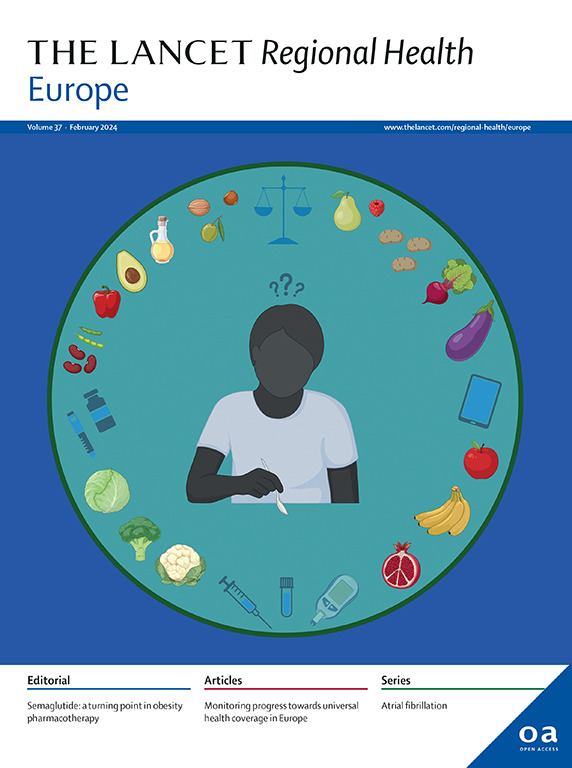Cancelled elective operations and 28-day breaches in the NHS in England: an interrupted time series analysis of the 2002 penalty policy, 2008 recession, and COVID-19 pandemic (1994–2023)
IF 13
Q1 HEALTH CARE SCIENCES & SERVICES
引用次数: 0
Abstract
Background
In 2002, the English National Health Service (NHS) introduced financial penalties for hospitals failing to provide elective operations within 28 days of last-minute cancellations. This study investigates the impact of this policy, the 2008 global recession, and the COVID-19 pandemic on cancelled operations and breaches of the 28-day standard.
Methods
We conducted a retrospective observational study using publicly available NHS England data from 1994 to 2023. Interrupted time series analysis assessed changes in cancelled operations and breaches of the 28-day standard across three key periods: pre- and post-2002 policy implementation, post-2008 recession, and post-COVID-19 pandemic. Subgroup analysis by hospital trust A&E department presence on breaches of the 28-day standard was performed.
Findings
Elective admissions nearly doubled over 30 years, rising from just over 1 million per quarter in 1994 (1,054,818) to almost 2 million in 2023 (1,975,508), an 87% increase. Cancellation rates increased leading up to the 2002 policy change but fell rapidly below 1% afterwards and remained stable. The 2008 recession and COVID-19 pandemic did not impact cancellation rates, but did increase breaches of the 28-day standard. Breaches rose before the 2002 policy, dropped rapidly afterwards (−9.6%, 95% CI: −11.2, −9.0), but increased after the recession and notably post-pandemic (13.0%, 95% CI: 4.9%, 21.0%), remaining high and negating earlier gains. Hospitals with A&E departments experienced higher post-pandemic increases in breach rates (12.7%, 95% CI: 10.8, 14.7) compared to those without (0.3%, 95% CI: −3.7, 4.4).
Interpretation
The 2002 policy effectively reduced breaches of the 28-day standard for many years but could not be maintained after the COVID-19 pandemic, when breach rates reached high levels, especially hospitals with A&E departments that could not protect elective beds. Effective targets require sufficient resource capacity and demand management, ignoring such constraints can lead to self-defeating, unjust policies.
Funding
National Institute for Health and Care Research Applied Research Collaboration West Midlands (NIHR200165).
取消选择性手术和英格兰NHS 28天违规:2002年处罚政策、2008年经济衰退和COVID-19大流行(1994-2023)的中断时间序列分析
2002年,英国国家医疗服务体系(NHS)对未能在最后一刻取消手术的28天内提供选择性手术的医院实施了经济处罚。本研究调查了这一政策、2008年全球经济衰退和COVID-19大流行对取消运营和违反28天标准的影响。方法:采用1994年至2023年英国国民保健服务(NHS)公开数据进行回顾性观察研究。中断时间序列分析评估了取消运营和违反28天标准的三个关键时期的变化:2002年政策实施前后、2008年经济衰退后和covid -19大流行后。对违反28天标准的医院信托急诊科进行亚组分析。在过去的30年里,选择性录取人数几乎翻了一番,从1994年的每季度100多万人(1,054,818人)增加到2023年的近200万人(1,975,508人),增长了87%。在2002年政策改变之前,取消率有所上升,但之后迅速降至1%以下,并保持稳定。2008年的经济衰退和COVID-19大流行没有影响取消率,但确实增加了违反28天标准的情况。2002年政策出台前违约率上升,政策出台后迅速下降(- 9.6%,95%置信区间:- 11.2,- 9.0),但在经济衰退后和大流行后显著上升(13.0%,95%置信区间:4.9%,21.0%),并保持高位,抵消了之前的收益。与没有急诊室的医院(0.3%,95% CI: - 3.7, 4.4)相比,有急诊科的医院在大流行后的违规率增加更高(12.7%,95% CI: 10.8, 14.7)。2002年的政策多年来有效地减少了违反28天标准的情况,但在2019冠状病毒病大流行后,违规率达到很高水平,特别是拥有急诊室的医院无法保护选择性床位,因此无法维持。有效的目标需要足够的资源能力和需求管理,忽视这些限制可能导致弄巧成拙和不公正的政策。西米德兰兹国家卫生与保健研究所应用研究合作(NIHR200165)。
本文章由计算机程序翻译,如有差异,请以英文原文为准。
求助全文
约1分钟内获得全文
求助全文
来源期刊

Lancet Regional Health-Europe
Multiple-
CiteScore
19.90
自引率
1.40%
发文量
260
审稿时长
9 weeks
期刊介绍:
The Lancet Regional Health – Europe, a gold open access journal, is part of The Lancet's global effort to promote healthcare quality and accessibility worldwide. It focuses on advancing clinical practice and health policy in the European region to enhance health outcomes. The journal publishes high-quality original research advocating changes in clinical practice and health policy. It also includes reviews, commentaries, and opinion pieces on regional health topics, such as infection and disease prevention, healthy aging, and reducing health disparities.
 求助内容:
求助内容: 应助结果提醒方式:
应助结果提醒方式:


